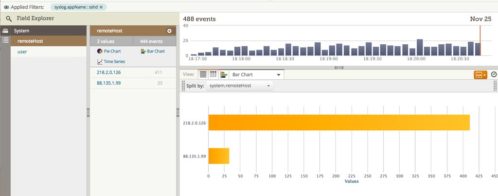New Automated Parsing for Heroku Logs
 Loggly now offers automated parsing for Heroku logs. This means that we can extract individual fields from this log data without any action on your part. Once your events have been parsed, you can filter by individual facets or fields, sort events in a grid view, and graph statistical trends by time or value.
Loggly now offers automated parsing for Heroku logs. This means that we can extract individual fields from this log data without any action on your part. Once your events have been parsed, you can filter by individual facets or fields, sort events in a grid view, and graph statistical trends by time or value.
Automated parsing will make it much easier for you to do filtering and analysis on Heroku logs. For example, if you only care about application logs, automated parsing will allow you to filter out noise from system logs, such as router logs.
Heroku logs are formatted as follows: timestamp source[dyno]: message
-
Timestamp – The date and time recorded at the time the log line was produced by the dyno or component.
-
Source – All of your app’s dynos (web dynos, background workers, cron) have a source of app. All of Heroku’s system components (HTTP router, dyno manager) have a source of heroku.
-
Dyno – The name of the dyno or component that wrote this log line.
-
Message – The content of the log line.
More details on this format are available in Heroku’s documentation:
https://devcenter.heroku.com/articles/logging
Of course, the best way to understand the value is to try Loggly for free and see your own data in action.
Happy Logging!
The Loggly and SolarWinds trademarks, service marks, and logos are the exclusive property of SolarWinds Worldwide, LLC or its affiliates. All other trademarks are the property of their respective owners.
Jason Skowronski


